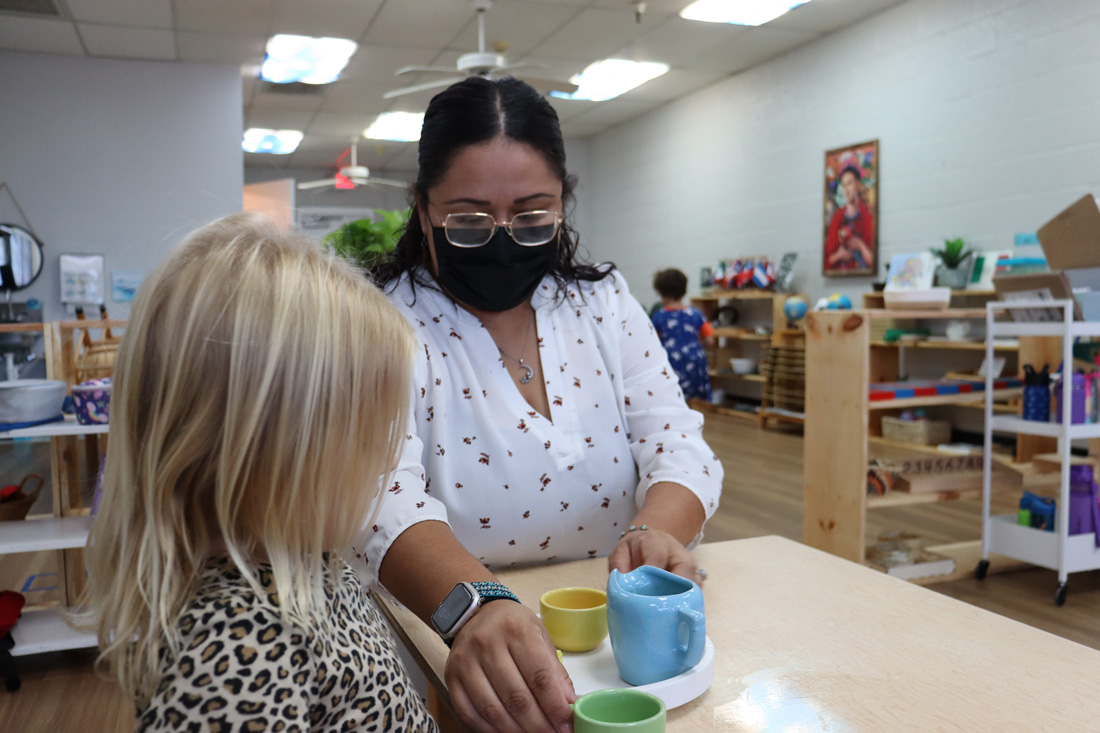A Quality First assessment provides feedback to recognize your program’s unique strengths and help you set goals for quality improvements using objective, research-based tools. Formal assessment is a regular part of participating in Quality First, but an informal assessment is also offered to all regulated early care and education providers in Arizona, whether your program is already enrolled in Quality First or if you are considering applying.
What is an informal assessment?
An informal assessment gives you the opportunity to receive objective feedback on your program’s everyday practices. It will not impact a Quality First star rating and is provided for professional development purposes only. First, you choose the classroom and timeframe that works best for your program. Next, you’ll be observed through standardized assessment tools used by skilled and reliable assessment staff. Then, written feedback will be emailed to you for review.
What are the benefits of an informal assessment?
An informal assessment provides another view of your program’s daily practices.
Dr. Ernestina Fuentes, executive director of Herencia Guadalupana Lab Schools II in First Things First (FTF) Pima South region, explained why she took advantage of an informal assessment. “We had so much transition of staff over the pandemic, so that each time we have been assessed it was with different teaching staff. We needed to see what was going on in our program.”
Fuentes explained that for her program, the written feedback reinforced strengths the program had been working on. It also provided data that allowed the teachers to make adjustments that aligned with their program’s philosophy.
For example, Fuentes shared, “In our classroom, we have powerful group gatherings. We work hard to appeal to multiple intelligences, to have action, songs, dance and yoga. The written feedback pointed out that we didn’t stop to pause and ask the children questions during that time. This was something we couldn’t have seen, because we were deeply entrenched in what we were trying to do. Informal assessment is having another pair of eyes, another perspective on what is happening in the classroom. Immediately we were able to take that feedback and implement changes. I modeled it for the teachers, and by pausing and asking children questions, it totally changed the tone of the group gatherings to be more reflective and child-centered.”
Deshika Perera, family child care provider and owner of Infant & Toddler Child Care, a Quality First participant in the FTF Southwest Maricopa region, has also used informal assessment, along with the support of her Quality First coach, to continually build the quality of her program. “It makes me get better and better. Once I read the informal report, I make changes.”
Perera explains she takes detailed notes from the report, reviews them with her coach and identifies changes she wants to make. “I start with what’s good, and I go to the next step to make it excellent.” In some cases, that means adding new materials to the learning environment, practicing new teaching strategies with the assistance of her coach or attending targeted professional development opportunities.
Both Fuentes and Perera shared that participating in informal assessment made them and their staff more comfortable with formal assessment and more at ease being observed.
“Do you want to know where you’re strong? Do you want to know where you’re weak?
If you’re open to a gift you can learn from, you should do it”
– Dr. Ernestina Fuentes, Executive Director of Herencia Guadalupana Lab Schools II
What to do if you’re considering an informal assessment?
Both Perera and Fuentes offer words of advice to those who may be considering an informal assessment for their early learning program.
Perera encourages all providers to take advantage of the opportunity. “Take it. You will see you can be more prepared for the assessment, and more confident. You can fix your mistakes and build upon your strengths. For me, it’s not about the star rating; it’s about my program, because we are serving the children. It makes you a better person, and gives you tools to help the children so they can be ready for kindergarten and to grow as people.”
“It’s a gift,” said Fuentes. “Do you want to know where you’re strong? Do you want to know where you’re weak? It’s a gift, you don’t have to do anything. They aren’t there to judge you, but just to give you a birds-eye view of what’s happening. If you are open to a gift that you can learn from, you should do it.”
What health and safety steps do assessors take when visiting programs?
Quality First assessors are vigilant about reducing the potential spread of germs when visiting early learning programs. When scheduling your informal assessment, the assessment staff will contact you in advance of their visit to inquire about any potential symptoms of COVID-19 or other health concerns. They will limit their contact to one program and one child care group per day to reduce the risk of spreading germs.
“The assessors used hand sanitizer and wore masks,” Perera shared, to reduce the spread of germs when visiting her program.
How do I request an informal assessment?
Both Fuentes and Perera described the process of requesting and scheduling an informal assessment as an easy one. Perera noted that the assessor worked to schedule the visit on a date and time that was convenient for her.
Quality First participants may visit the Extranet’s Quality First Resources and select “Quality First Forms” to find the Informal Assessment Request form. Instructions for submittal are included on the form.
Early care and education programs that are not enrolled in Quality First can submit a request to the Quality First Assessment Program Manager, Katie Romero, at kromero@swhd.org or call 602.633.8652.
